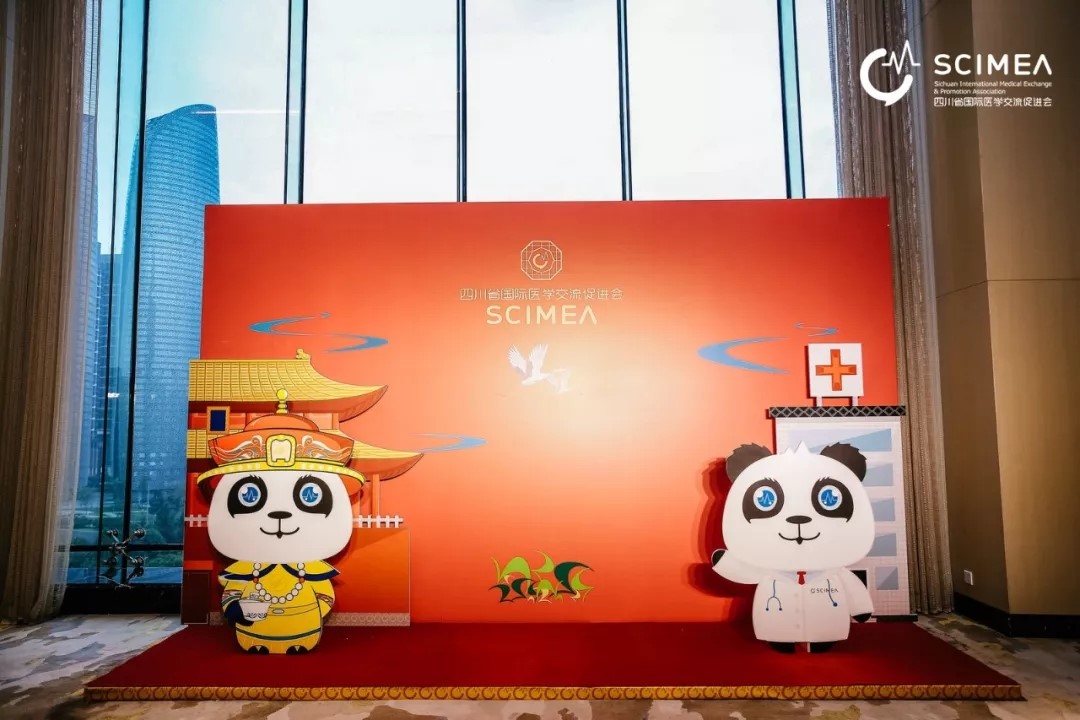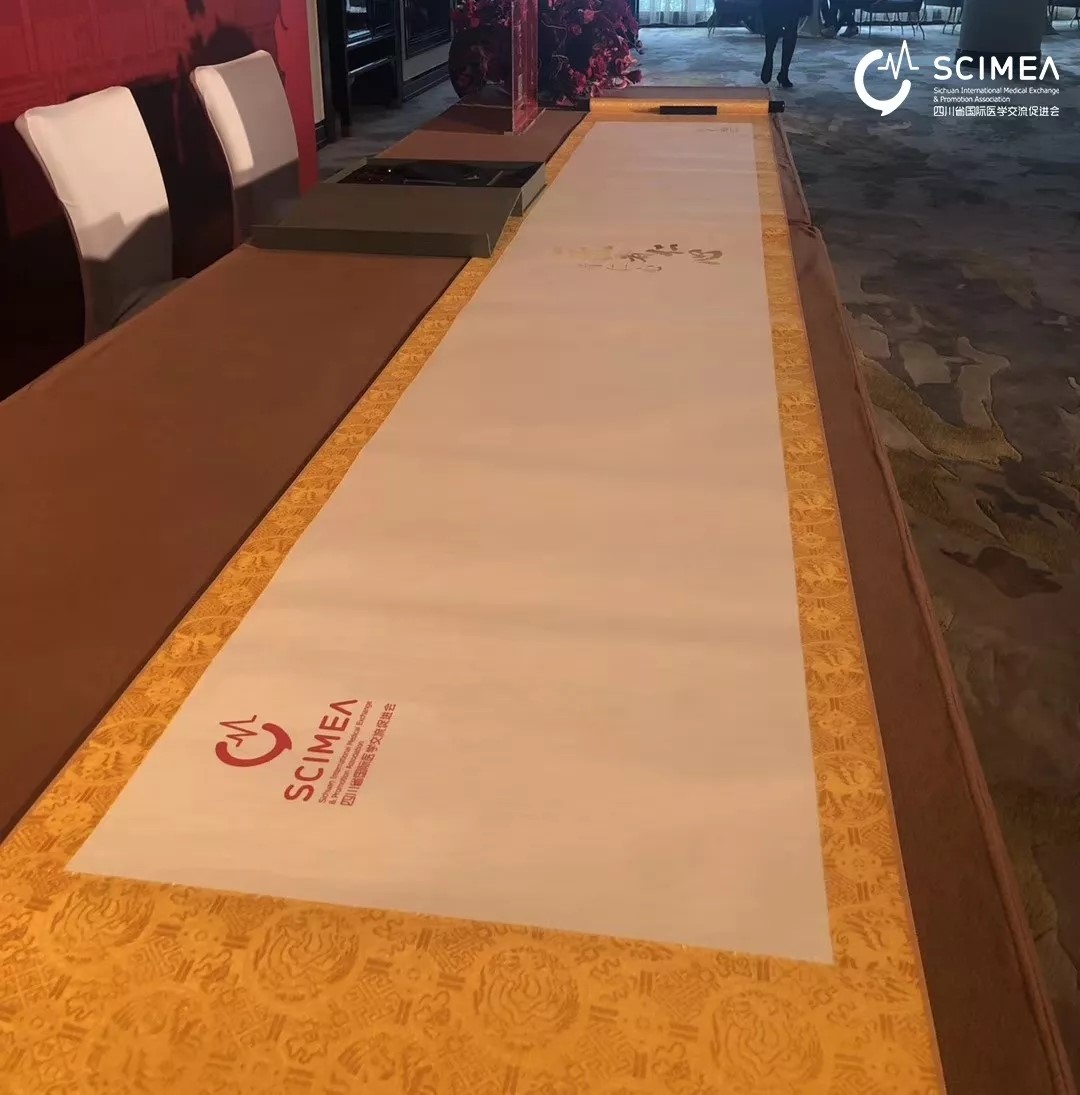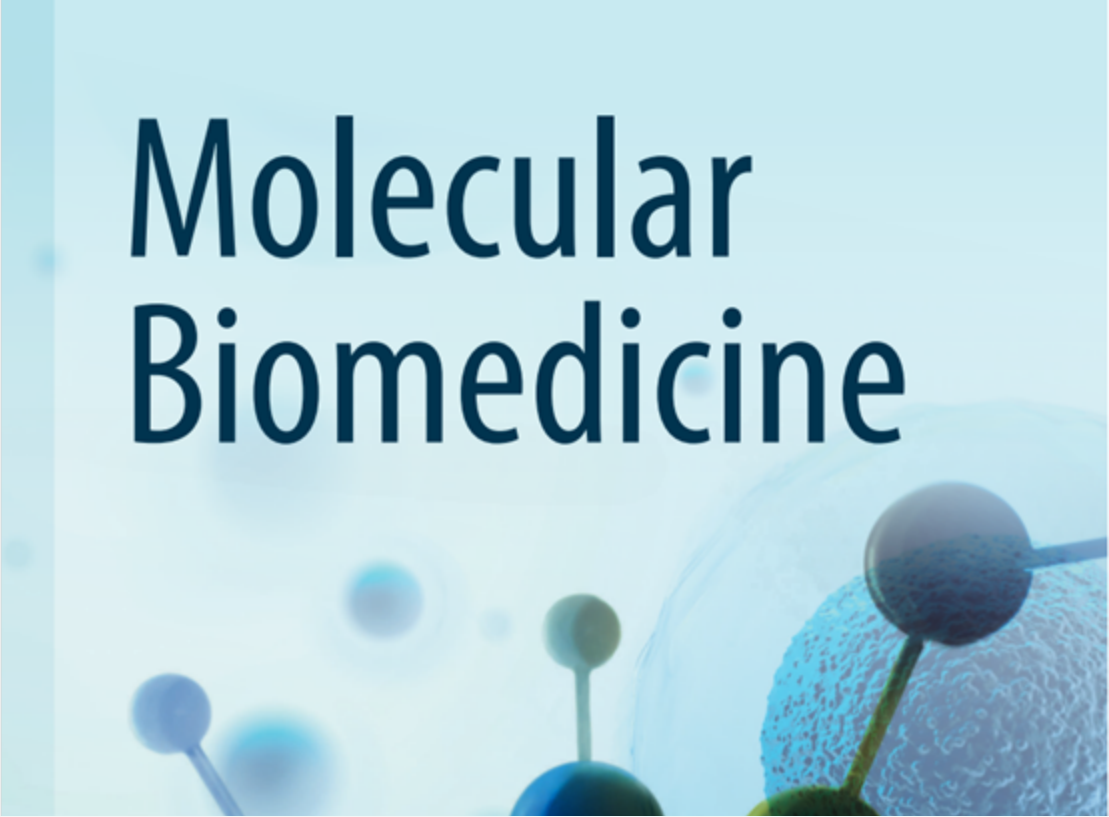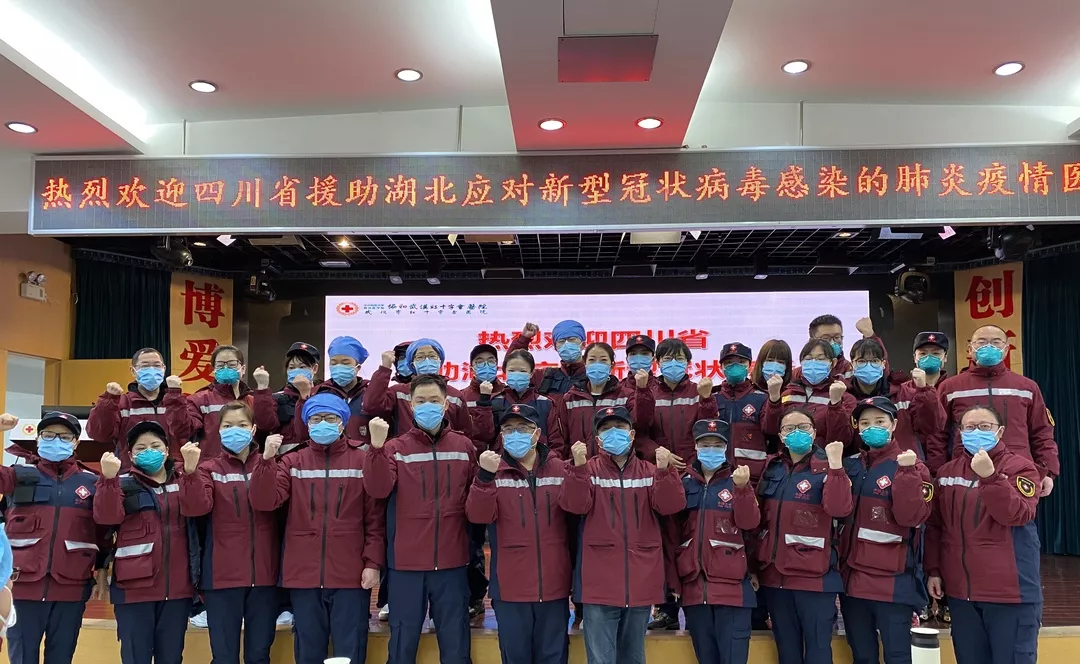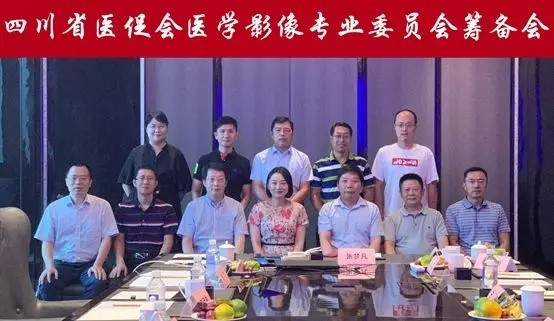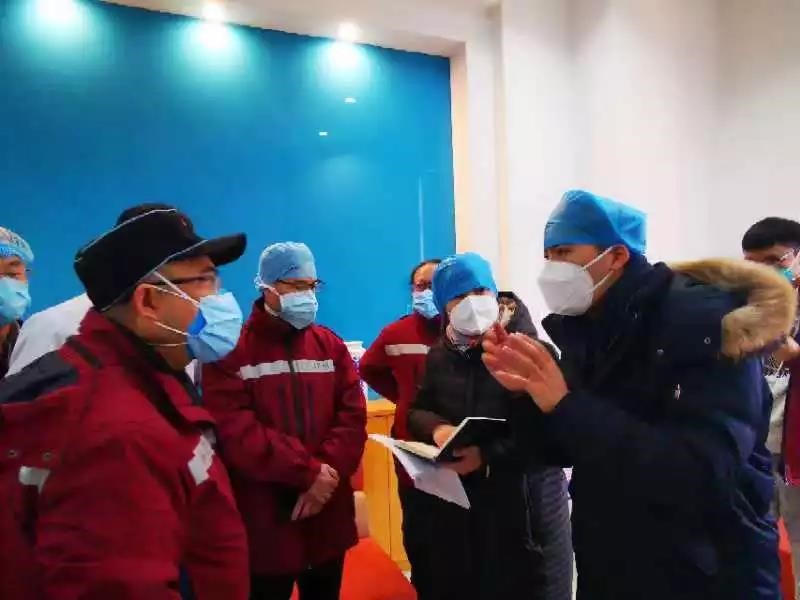On September 5, 2019, the "Artisan's Benevolence, Doctor’s Benevolence " exchange meeting hosted by Sichuan International Medical Exchange & Promotion Association (SCIMEA) was held in Chengdu High-tech Zone. Prof. Shan Jixiang, President of The Palace Museum was invited to the meeting as a guest speaker, and conducted cross-border exchanges between modern medicine and traditional culture, the Palace Museum story and classic literature with more than 60 top medical experts.
Video (see zipped file)
The event was hosted by Zhang Mengfan, secretary-general SCIMEA. Professor Shan Jixiang shared the stories of the cultural relics in the Palace Museum and the first cultural relics school with medical experts present on the theme of "the artisan's benevolence – ‘revive’ the cultural heritage of the Palace Museum". He said that the repairmen who restore and maintain cultural relics carry the similar mission of doctors who save people’s lives. There are many cultural relics in our country that are not been taken care of, where more cultural relic hospitals and cultural relics doctors are needed to "revive” these ancient cultural heritages.
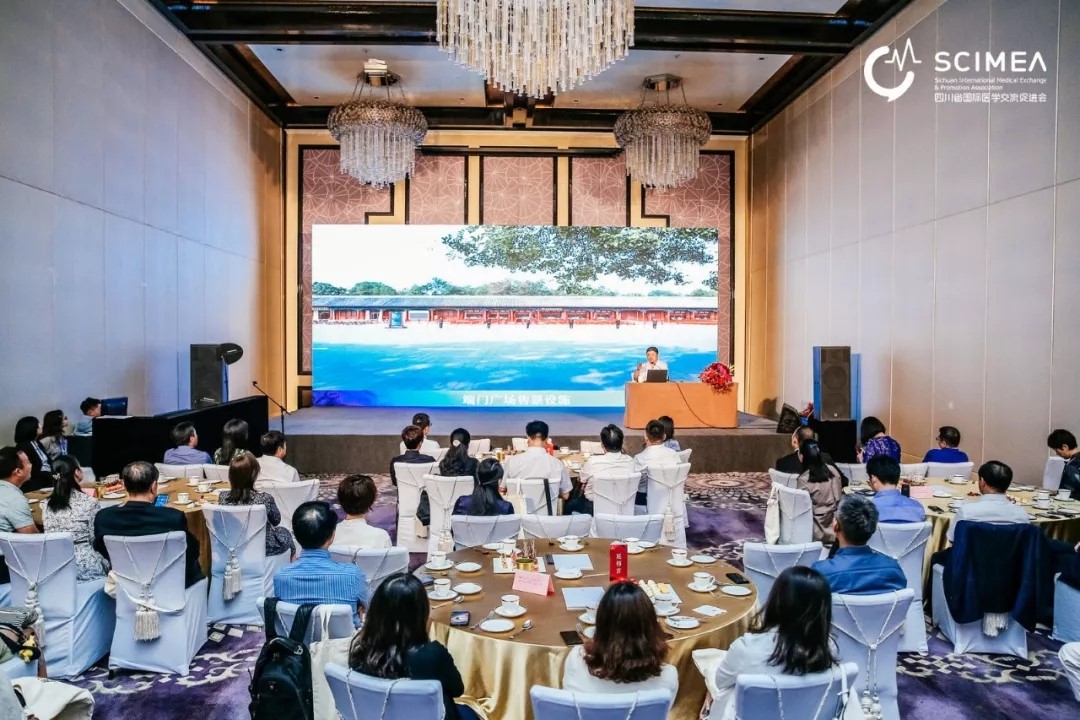
Secretary General Xi Jinping instructs that it is necessary to systematically sort out the traditional cultural resources, so that the cultural relics collected in the Palace Museum, the heritage displayed on the vast land of China, and the characters written in the ancient books can be revived.
In order to better carry out cultural relics protection and repair, and to cultivate more cultural relics doctors with practical skills who meet the needs of cultural relics protection and restoration, the Palace Museum worked with some universities and established the first cultural relics medical school in China, providing talents and technology for cultural protection. Shan Jixiang said that there are 1,807,558 pieces (sets) of cultural relics in the Palace Museum, and every piece is precious and glorious. In order to tell the audience about the historical stories behind more cultural relics, the Palace Museum has made many attempts in recent years, such as holding special exhibitions, establishing digital communities, researching and developing cultural innovation products, restoring the Longevity Lights, holding ceremony on Spring Festival and Lantern Festival in the Forbidden City, opening of Forbidden City College nationwide, etc., and thus setting up the Palace Museum as a typical example of promoting traditional culture.
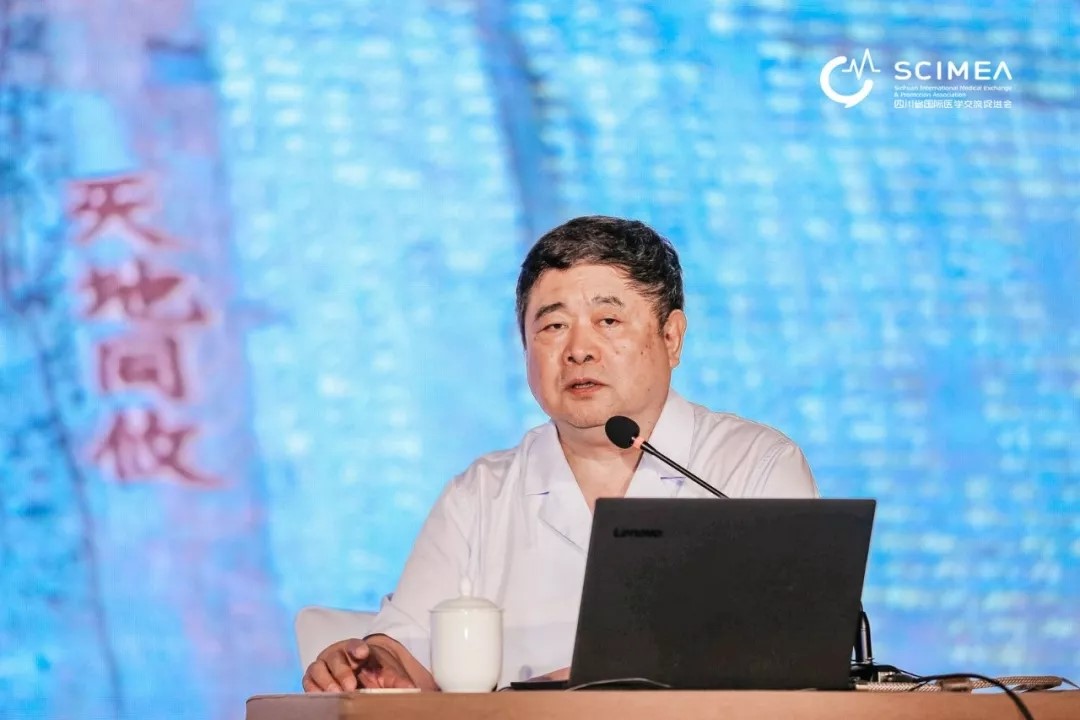
Regarding the roles of "artisans" and "doctors", Professor Shan Jixiang said that both the "artisan" who protects and repairs cultural relics and the "doctor" who strive for human health are both working for promoting the development of human civilization and keeping people's spirit and body at a healthy state in the long run. The "artisan" of cultural relics protection and the "doctor" who saves the wounded and dying both need benevolence and patience to undertake the glorious mission needed in their professions so that they can provide better services. No matter which role one plays, they should keep listening to the voices of people from all walks of life, humbly draw on different opinions and useful experience at home and abroad, keep innovating, and convey more influential medical research achievements for the benefit of mankind.
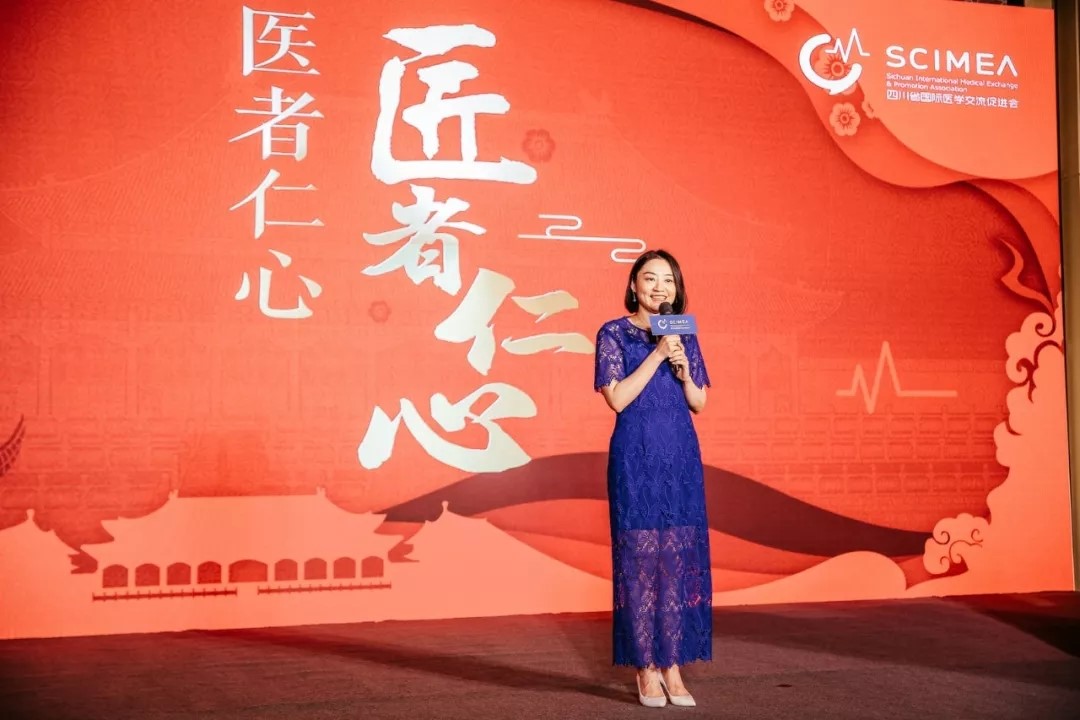
Secretary Zhang showed her high admiration of Professor Shan Jixiang's commitment. She said that Professor Shan Jixiang's reform and innovation in cultural relics protection has greatly inspired SCIMEA. SCIMEA will uphold its principle of “innovation, mutual learning, inclusiveness, joint construction, and sharing”, and strive to become a new force in the health industry.
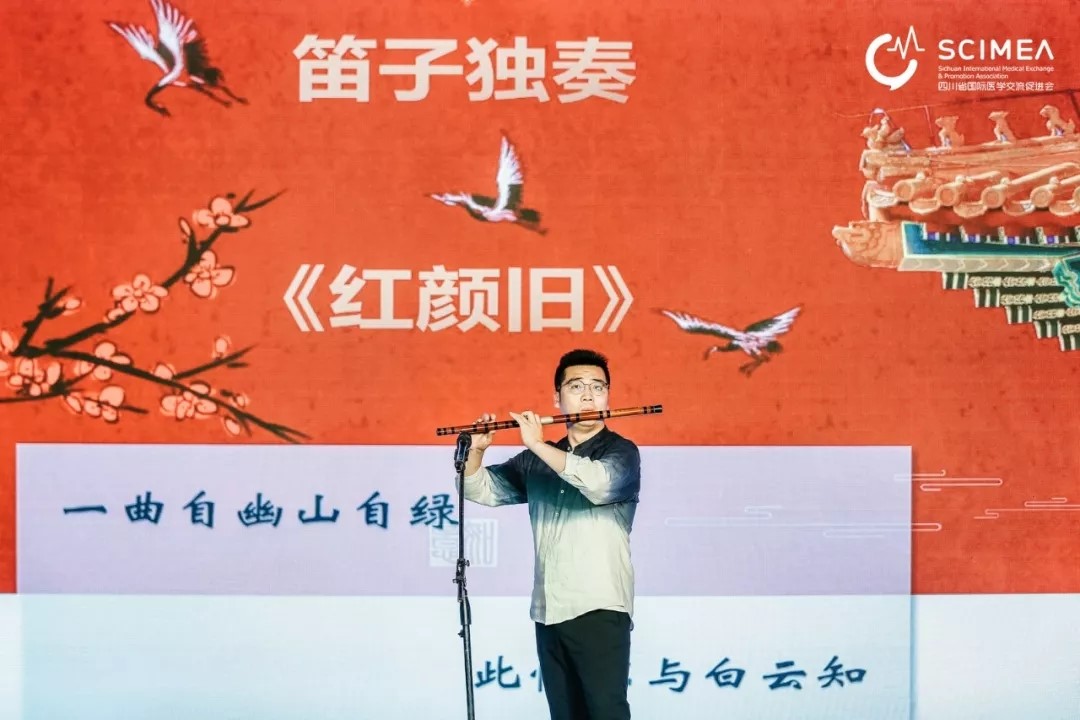
At the meeting, besides the humorous and interesting speech by Professor Shan Jixiang, there was flute performance My Old Love brought by Li Yingchun, a master of bamboo flute at the Sichuan Conservatory of Music. It fully demonstrated the charm of traditional culture and marked a perfect conclusion of the event.
Traditional Culture Displayed at the Meeting
